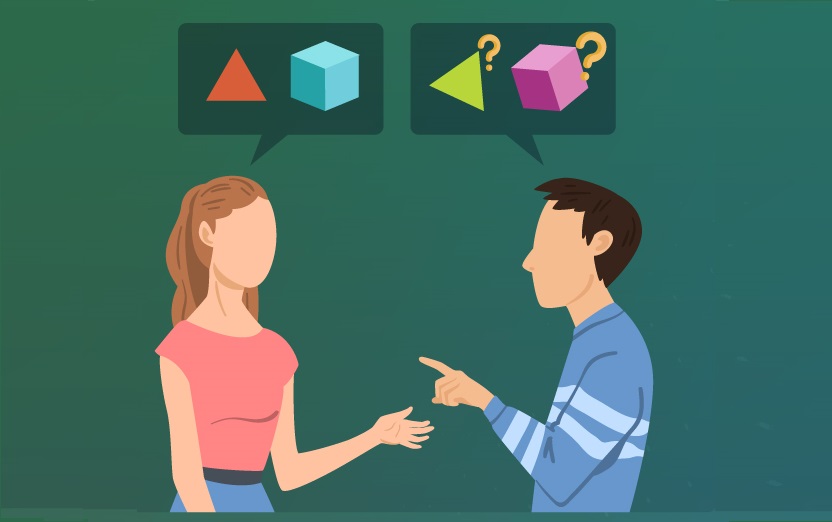Cross-Cultural Differences in the Socio-Cognitive Abilities of Non-Autistic and Autistic Individuals
Fri, May 30, 2025-
Tags
Cross-Cultural Differences in the Socio-Cognitive Abilities of Non-Autistic and Autistic Individuals
Cross-cultural analysis reveals differences in mentalizing and socio-cognitive abilities between Japanese and British autistic and non-autistic adults
Emerging theories suggest that communication challenges arise from differing perspectives between autistic and non-autistic partners rather than individual socio-cognitive deficits. In addition, while social behavior varies between cultures, observations from Western cultures dominate our understanding of autism. Researchers from Japan and the UK have conducted a cross-cultural analysis comparing the mentalizing performance of British and Japanese autistic and non-autistic adults. Their study highlights the need for more culturally sensitive socio-cognitive measures to assess autistic traits.

Communication challenges may result from a mismatch in perspectives between autistic and non-autistic individuals. While social interactions and behaviors differ across cultures, their impact on socio-cognitive abilities remains unclear. A cross-cultural analysis by researchers from Japan reveals differences in the mentalizing performance of Japanese and British autistic and non-autistic adults, highlighting the need for culturally sensitive measures to diagnose autism accurately.
Autism spectrum disorders are associated with difficulties in social communication, long attributed to individual socio-cognitive deficits. As a consequence of this perspective, stigma and pressure to conform to neurotypical social norms often lead to mental health challenges among autistic individuals. Emerging theories suggest that communication difficulties may rather arise from mismatches in perspectives between autistic and non-autistic partners. Addressing this mismatch collaboratively could transform the understanding of autism and improve communication outcomes.
Social behavior also varies significantly across cultures. Gestures, eye contact, and body language that are considered appropriate in one culture may be perceived differently in another. Nevertheless, current socio-cognitive assessments largely reflect Western norms, limiting their applicability to non-Western populations.
To bridge this gap, researchers from Japan conducted a cross-cultural analysis to compare mentalizing difficulties, or challenges in understanding the thoughts and feelings of others, in British and Japanese autistic and non-autistic adults. Led by Dr. Bianca Schuster, a researcher at Waseda University, Japan, with co-authors Associate Professor Yuko Okamoto and Professor Rieko Osu from Waseda University, Professor Hirotaka Kosaka from the University of Fukui, and Dr. Masakazu Ide from the National Rehabilitation Center for Persons With Disabilities, the study highlights the importance of considering neurodivergent perspectives rather than attributing difficulties solely to autistic individuals.
Explaining the rationale behind their work, Dr. Schuster says, “Autistic and non-autistic people have different experiences and therefore perceive and interact with the world differently. Such a mismatch in perspectives can lead to difficulties in understanding each other’s respective social cues – a problem termed the ‘double empathy problem.’ This theory has received a lot of attention in recent years, but there are still very few studies that have formally tested it.” Their findings were published in Volume 16 of Molecular Autism on May 14, 2025.
The researchers used animations showing social scenes, depicted by moving triangles, and asked participants to interpret what was happening. They found that non-autistic British adults struggled to interpret animations created by their autistic peers. In contrast, British autistic adults demonstrated similar performances when interpreting animations made by both autistic and non-autistic people. The fact that British autistic adults did not perform better with animations made by their own neurotype may reflect that, in comparison to neurotypical groups, the perspectives of British neurodivergent individuals may be too varied.
Conversely, Japanese autistic and non-autistic adults interpreted animations created by their own and the respective other group with comparable accuracy. Notably, cross-cultural analyses revealed that while there was no difference in performance between Japanese and British non-autistic adults, Japanese autistic participants outperformed both groups of British participants. In addition, animations created by Japanese autistic adults were interpreted with higher accuracy by all autistic participants. Nevertheless, motor performance was comparable across all participants.
Overall, these findings support a paradigm shift toward treating autism as a different way of experiencing and interpreting the world, while recognizing it as a social disability shaped by challenges within a predominantly neurotypical environment. An inclusive environment that values socially diverse behaviors can support autistic individuals and enhance their mental well-being. Furthermore, the observed results do not likely mean that Japanese people are better at mentalizing than British individuals, because real-world difficulties in communication and social understanding do exist between autistic and non-autistic people in Japan, too. Instead, the findings may indicate that the task used in the current study may not be sensitive enough to detect mentalizing differences in the Japanese culture, highlighting the need to develop more culturally sensitive research and diagnostic tools.
“Cultural differences related to the diagnosis of autism may be subtle but can still lead to misclassification of cases and therefore have a significant impact on the lives of individuals. The results of this study highlight the urgent need for culturally inclusive research and the development of diagnostic criteria and tools that accurately reflect and respect the diverse manifestations of autism in different cultural contexts.” Dr. Schuster adds.
Reference
Title of original paper: A cross-cultural examination of bi-directional mentalising in autistic and non-autistic adults
DOI: 10.1186/s13229-025-00659-z
Journal: Molecular Autism
Article Publication Date:
Authors: B. A. Schuster1,2,3, Y. Okamoto2,4, T. Takahashi1, Y. Kurihara1, C. T. Keating5,6, J. L. Cook5, H. Kosaka7, M. Ide8, H. Naruse7, C. Kraaijkamp5, and R. Osu1
Affiliation:
1. School of Human Sciences, Waseda University
2. Waseda Institute for Advanced Study, Waseda University
3. Department of Cognition, Emotion, and Methods in Psychology, University of Vienna of Vienna
4. Department of Sports Science, Faculty of Health and Sports Science, Juntendo University
5. Centre for Human Brain Health and School of Psychology, University of Birmingham
6. Department of Experimental Psychology, University of Oxford
7. University of Fukui
8. National Rehabilitation Center for Persons With Disabilities














